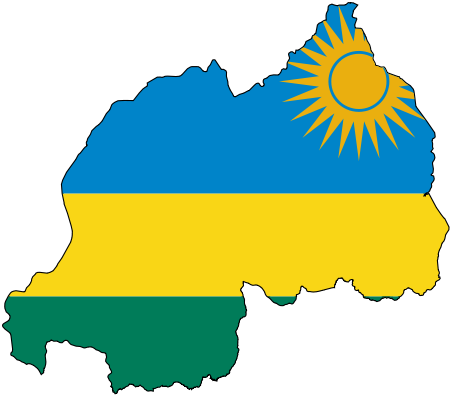Co-Prime Sensor Array Signal Processing
Background:
This Basic Research Challenge will establish the theoretical foundations of co-prime signal processing – a new waveform sampling strategy that offers the promise of simplified sensor array design, streamlined signal processing, and efficient image formation techniques.
In the spatial domain, co-prime array designs have been used to extend the concept of minimally redundant sensor arrays, which span large apertures using far few elements than classical antenna theory dictates.
For example, consider two uniform line arrays whose sensor spacing are M λ /2 and Nλ /2, where λ is a wavelength, and M and N are co-prime integers (integers with no common factor other than unity).
It can be shown that for spatially stationary fields, inference made using these two arrarys is asymptotically equivalent to that which could be obtained using a fully populated array of MN elements spaced at the classical =λ/2 spacing.
Furthermore, even though the arrays contain only M+N-1 elements (one element can be shared), their co-array possesses a full MN degrees of freedom from which O (MN) sources can be elucidated.
The payoffs are two-fold:
simplified, reduced cost array designs and significantly streamlined downstream processing.
Objective:
Although the preliminary results as stated above are promising, many open problems exist such as:
• How can the one-dimensional theory be extended to two-dimensional arrays? • Can the concept be generalized to active systems such as communication systems, radar, and active sonar? Can transmitter waveform and receiver designs be jointly optimized within a co-prime mathematical framework? • How is the system performance affected if random errors are introduced into element spacing? • Can efficient imaging systems be implemented with co-prime based sensing strategies? • What is the theoretical bound to the maximum number of sources that can be elucidated by two-dimensional sensing systems? • How can the theory be generalized to sensing in multipath environments? • Can co-prime sampling theory be generalized to sensing in multipath environments? • Can co-prime sampling theory be used to develop efficient Fourier transform algorithms? The Office of Naval Research hereby calls for white papers responding to the Co-Prime Signal Processing Basic Research Challenge topic.
The Basic Research Challenge Program was established to competitively select and fund promising research programs in new areas not addressed by current programs.
It stimulates new, high-risk basic research projects in multidisciplinary and departmental collaborative efforts, funds topics that foster leading edge science, and attracts new principal investigators and performers ************************************************************************************************************************************The FULL ANNOUNCEMENT is available on the Grants.gov website by scrolling to the top of the synopsis page and clicking on the "FULL ANNOUNCEMENT" box surrounded by the dotted line at the top of the page.
Applicants shall NOT apply under this Special Notice.
Applicants shall apply using the Application Instructions and Package under ONRBAA12-00 1.
This Basic Research Challenge will establish the theoretical foundations of co-prime signal processing – a new waveform sampling strategy that offers the promise of simplified sensor array design, streamlined signal processing, and efficient image formation techniques.
In the spatial domain, co-prime array designs have been used to extend the concept of minimally redundant sensor arrays, which span large apertures using far few elements than classical antenna theory dictates.
For example, consider two uniform line arrays whose sensor spacing are M λ /2 and Nλ /2, where λ is a wavelength, and M and N are co-prime integers (integers with no common factor other than unity).
It can be shown that for spatially stationary fields, inference made using these two arrarys is asymptotically equivalent to that which could be obtained using a fully populated array of MN elements spaced at the classical =λ/2 spacing.
Furthermore, even though the arrays contain only M+N-1 elements (one element can be shared), their co-array possesses a full MN degrees of freedom from which O (MN) sources can be elucidated.
The payoffs are two-fold:
simplified, reduced cost array designs and significantly streamlined downstream processing.
Objective:
Although the preliminary results as stated above are promising, many open problems exist such as:
• How can the one-dimensional theory be extended to two-dimensional arrays? • Can the concept be generalized to active systems such as communication systems, radar, and active sonar? Can transmitter waveform and receiver designs be jointly optimized within a co-prime mathematical framework? • How is the system performance affected if random errors are introduced into element spacing? • Can efficient imaging systems be implemented with co-prime based sensing strategies? • What is the theoretical bound to the maximum number of sources that can be elucidated by two-dimensional sensing systems? • How can the theory be generalized to sensing in multipath environments? • Can co-prime sampling theory be generalized to sensing in multipath environments? • Can co-prime sampling theory be used to develop efficient Fourier transform algorithms? The Office of Naval Research hereby calls for white papers responding to the Co-Prime Signal Processing Basic Research Challenge topic.
The Basic Research Challenge Program was established to competitively select and fund promising research programs in new areas not addressed by current programs.
It stimulates new, high-risk basic research projects in multidisciplinary and departmental collaborative efforts, funds topics that foster leading edge science, and attracts new principal investigators and performers ************************************************************************************************************************************The FULL ANNOUNCEMENT is available on the Grants.gov website by scrolling to the top of the synopsis page and clicking on the "FULL ANNOUNCEMENT" box surrounded by the dotted line at the top of the page.
Applicants shall NOT apply under this Special Notice.
Applicants shall apply using the Application Instructions and Package under ONRBAA12-00 1.
Relevant Nonprofit Program Categories
Obtain Full Opportunity Text:
Link to all ONR BAA's
Additional Information of Eligibility:
Refer to ONRBAA12-001
Full Opportunity Web Address:
Contact:
Agency Email Description:
Agency Email:
frank.j.kennedy@navy.mil
Date Posted:
2012-07-25
Application Due Date:
2012-09-21
Archive Date:
2012-10-21
Social Entrepreneurship
Spotlight
Rwanda as Social Entrepreneur Fund Beneficiary

The Republic of Rwanda has been picked as one of the six African countries as beneficiaries for a new fellowship fund program designed at supporting social entrepreneurs in tackling issues on food security.

